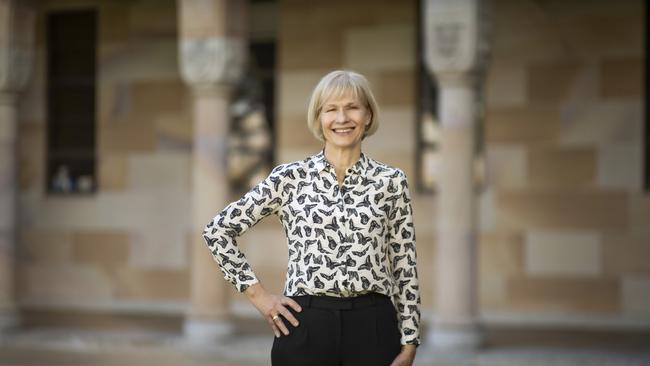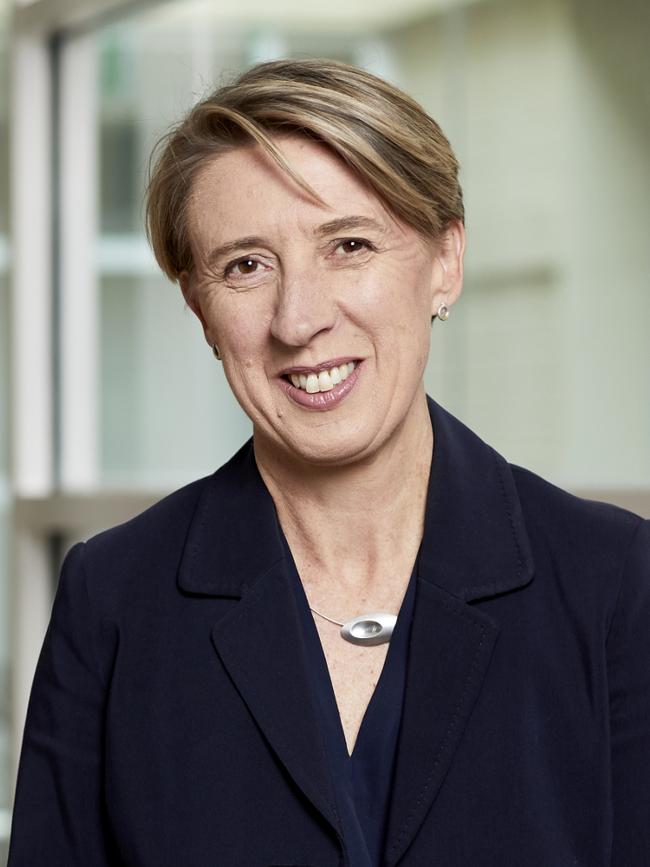After losing lobbying influence, Universities Australia reviews itself
There’s turmoil at the top levels of universities in a blame game over how the top higher education lobby group lost influence.

When university vice-chancellors met for one of their scheduled get-togethers a few days after the 2019 election they had a session planned on working with government.
It was cancelled at the last minute. Why? Because the peak body Universities Australia had not prepared itself for the possibility that the Coalition would win. It had placed all its bets on Labor and when Scott Morrison unexpectedly held onto power it was totally unprepared.
“There was no plan B,” said one of the participants at the event, held in Melbourne on May 21 last year, just after the May 18 election.
Many vice-chancellors were infuriated. So were university chancellors — the functional equivalents of the chairman of a corporate board — who lead universities’ top governing body, usually called the council or senate.
READ MORE: Review heralds tertiary shake-up | Real-world work for undergrads | Covid spike in uni applications | How TAFE can save our young | Post-pandemic strategy for skills |
The Melbourne plenary meeting was a critical event along the road to the major review, revealed by The Australian last week, that Universities Australia has now commissioned into itself.
The meeting was important not only because it happened, by chance, to fall just after the election. It was also the one annual plenary of UA — which is run by vice-chancellors or the chief executives of universities — to which the chancellors and their group, the University Chancellors Council, are invited (although most of their sessions are held separately).
The result was that not only did all vice-chancellors see that their peak body had not prepared for the possibility of a Morrison victory but their bosses, the chancellors, witnessed it too.
To make matters worse there was also no “blue book”, the document which UA would have been expected to give to the incoming government.
Before each federal election every major industry lobby group customarily prepares a “red book” (for Labor) and a “blue book” (for the Coalition) which list the policies they want to see implemented, presented in such a way to gain most sympathy from the incoming government. At the last election UA only had the “red book”.
Another major issue facing universities at the May 2019 meeting was the review of freedom of speech in universities, undertaken by former chief justice Robert French.
He was at the meeting in his capacity of chancellor of the University of Western Australia. His review had been released the previous month and he sought to brief a joint meeting of chancellors and vice-chancellors about it. Universities Australia, on behalf of the vice-chancellors, turned him down. This extraordinary rebuff led to some frustrated chancellors speaking more openly in support of the French review, overriding the concerns many vice-chancellors had.
A year and a half later the tensions between chancellors and vice-chancellors which were very evident at the meeting have intensified to the point where the board of UA, which is made up of vice-chancellors, has initiated a major review to resolve them.
There are other high pressure issues in the mix. One is that vice-chancellors have traditionally led universities with little interference from their chancellors, who largely had a ceremonial role.

All that has changed. Universities are now billion dollar businesses and need to be run as such, with chancellors acting more like company chairmen and university councils bringing in some of the broad mix of experience typically found on a large corporate board.
The ranks of chancellors now include people like Commonwealth Bank chairman Catherine Livingstone (University of Technology Sydney), former foreign minister Julie Bishop (ANU), retired defence force chief Angus Houston (University of the Sunshine Coast), businesswoman Belinda Hutchinson (University of Sydney), businessman David Gonski (UNSW), former foreign affairs department head Peter Varghese (University of Queensland) and former Telstra CEO Ziggy Switowski (RMIT).
The chancellors also have a group, the University Chancellors Council chaired by Flinders University chancellor Stephen Gerlach, which plays an increasingly active role.
But there is a strong pushback from some vice-chancellors who are resisting the growing power of chancellors and, by extension, the university councils.
The two groups have clashed before. In 2017 the dispute was over the university code of governance, a voluntary agreement which sets out the role and responsibilities of university councils. Chancellors believed they were being shut out of a review of the code. Eventually it was resolved and an amended code was signed off by both chancellors and vice-chancellors. But the episode left a legacy of mistrust.
After the May 2019 meeting the view of UA held by many chancellors deteriorated further. After the election, Education Minister Dan Tehan went all out to achieve what had eluded his two predecessors, Simon Birmingham and Christopher Pyne. He wanted a new university funding scheme which reduced the government contribution to higher education.
Tehan made the most of the fact that UA had lined itself up for a Labor election victory. He refused to negotiate through UA’s formal structures. He set up his own kitchen cabinet of five vice-chancellors as a consultation group, chaired by University of Wollongong vice-chancellor Paul Wellings, which conducted a review for him on one aspect of the new funding plan.
Tehan also made himself accessible to individual vice-chancellors as well as the groups which represent particular sets of universities: the Group of Eight, the Australian Technology Network, the Innovative Research Universities and the Regional Universities Network. He also consulted regularly with the chancellor’s group, the UCC, which only made chancellors even more aware of the difficulties being experienced by UA in liaising with the minister.
It was a clever divide and rule strategy. Its outcome was that new university funding legislation was passed which reduces the average Commonwealth contribution to teaching costs from 58 per cent to 52 per cent.
It was not only chancellors who were becoming very concerned at UA’s effectiveness at engaging with government. Many vice-chancellors were concerned too.
Some of them see Monash University vice-chancellor Margaret Gardner, who was chair of UA up until the fateful plenary meeting in May 2019, as bearing responsibility for this. A strong personality, and perceived as Labor leaning, Gardner stoutly resisted university cuts and, under her, UA banked on a Labor win which would have pumped $1bn more each year into university funding (assuming the party kept its promise). Gardner has a view of the discussion about government policy at that plenary meeting which contrasts with that held by many participants.

“A briefing paper was presented, and discussed, that dealt broadly with policy proposals from ALP and the policies of the Coalition government,” she said when it was put to her that UA was not prepared with briefing material for a Coalition win.
People also see UA’s chief executive Catriona Jackson, who was appointed during Gardner’s term, as partly responsible for UA’s lack of cut through. It was not that she was totally shut out of interaction with government following the election. For example she is on the university foreign interference taskforce, formed jointly with the government to deal with security issues.
But whatever responsibility is sheeted home to the UA leaders at that time for the poor relations with the Morrison government, it is not theirs alone. Many individual vice-chancellors also worked with Labor prior to the 2019 election, on the assumption that the party would win.
Current UA chair, University of Queensland vice-chancellor Deborah Terry, is leader who is inclined to build consensus. It’s no accident that, under her, UA has commissioned the review which will examine the organisation’s “core functions and strategic positioning”, its “capacity to advocate effectively”, its governance arrangements and key stakeholder relationships, specifically naming the chancellors’ group, the UCC.
It’s clear that the chancellor’s want a greater say in UA, and possibly seats on its board or at least a formal consultative role. It sets up a battle which won’t be pretty. Many vice-chancellors will fight to the end to prevent chancellors playing a greater role.
But UA’s structure and functions are also being looked at the in the review. And there are also many vice-chancellors, possibly some of the same ones, who want UA to perform better in its lobbying and engagement roles and to lead the positioning of universities as key instruments to address the big issues of the 21st century, of which COVID is only one.
Dawn Freshwater, who until a year ago was vice-chancellor of the University of Western Australia and now leads the University of Auckland, calls on her former Australian colleagues to look at the big picture.
“If it (the review) becomes a spat between the chancellors and vice-chancellors then we have missed an opportunity,” she said.
“The opportunity is there for us as the sector and the peak bodies to really collaborate with government and other partners to review the overall structure of our industry which needs to be much more responsive in how it meets the needs of the global challenges that we face.”




To join the conversation, please log in. Don't have an account? Register
Join the conversation, you are commenting as Logout